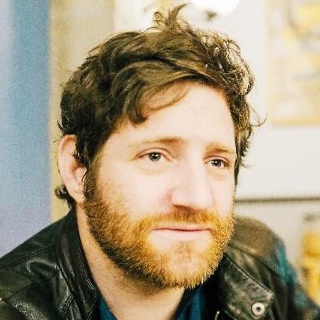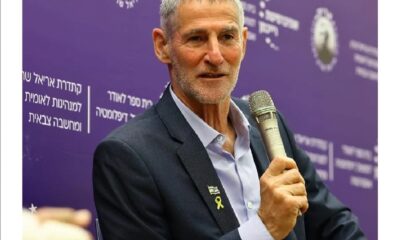
OpEds

Israel’s relationship with Africa runs deep
The South African government recently acted surprised that Israel had rejoined the African Union (AU) as an observer. History tells us that it shouldn’t have.
Connections between Israel and Africa go back more than a century. The founder of Zionism, journalist Theodor Herzl, wrote in his seminal book, Altneuland (1902), “Once I have witnessed the redemption of the Jews, my people, I wish to also assist in the redemption of the Africans.”
In African intellectual circles in the early 1900s, the idea of national Jewish liberation was a popular one. For instance, the founder of Pan-Africanism, Marcus Garvey, championed what was known as “Black Zionism”, and once asserted that “many white men have tried to uplift them, but the only way is for the Negroes to have a nation of their own is like the Jews, that will command the respect of the nations of the world with its achievements”. Liberian diplomat/journalist Edward Wilmot Blyden referred to “that marvellous movement called Zionism” as a model for African emancipation.
Once African countries started gaining independence in the 1960s, these ideas gained currency at continental level.
Kwame Nkrumah, the president of Ghana, expressed it best in 1961 when he said, “We understand one another, Jews and Negroes. We were both oppressed for a long time, and now we both have our own independent states.”
It was more than just commonalities between national ideologies, however, that drove the early Africa-Israel relationship. Israel made an attractive diplomatic partner in Africa. As a small country, Israel was in no position to be an agent of neo-colonialism. In fact, having recently overthrown the British, Israel was a good example of a successful liberation struggle.
Also, African states and Israel shared many of the same developmental challenges. President Julius Nyerere observed in 1957 that, “Israel is a small country … but it can offer a lot to a country like mine. We can learn a great deal because the problems of Tanganyika are similar to Israel’s.” This resulted in a vast array of joint projects across the continent including construction, agriculture, aquaculture, healthcare, hydrology, youth movements, regional planning, engineering, community services, and many others.
John Tettegah, the secretary-general of Ghana’s trade union movement, said his visit to Israel had “given me more in eight days than I could obtain from a British university in two years”. African states also appreciated the experiment that Israel was undertaking by bringing in Jews from all over the world. Kenyan President Jomo Kenyatta believed that, “You have built a nation with Jews coming from all corners of the world; we want to build a unified Kenya of a multitude of tribes joined together through harambee [working together]”.
Many African citizens also went to Israel to study at its tertiary institutions, including the Weizmann Institute of Science, Hebrew University, and Mount Carmel Center, which was dedicated to training women in the developing world.
By 1965, most major African leaders had visited Israel, coming from the Central African Republic, Chad, Dahomey (Benin), the Congo, Gabon, Gambia, Ivory Coast, Liberia, Madagascar, Uganda, Mali, and Upper Volta (Burkina Faso). Israel’s friends included President William Tubman’s Liberia (which voted for the establishment of the state in 1947 at the United Nations (UN)) and Emperor Haile Selassie’s, Ethiopia.
By 1973, Israel had established relations with 32 African states. Many opened embassies in Israel, of which a number were based in Jerusalem. Included on this list were those of the Ivory Coast and Kenya. Israel also gained observer status on the Organisation of African Unity (OAU). In return, Israel was a regular backer of anti-apartheid resolutions at the UN, eventually having the most votes against apartheid of any western nation.
However, Israel-Africa relations weren’t always smooth, and were subject to continuous pressure by Arab states. But African leaders resisted. Nyerere, said, “We’re not going to let our friends determine who our enemies are.”
The real blow came after the 1973 Yom Kippur War. The Arab states threatened any country which had relations with Israel with an oil embargo. They also promised aid to those African countries that broke ties with Israel. The strategy sent the oil price rocketing, leading to a global economic crisis, but proved strategically successful. African states weren’t able to resist any longer. President Léopold Sédar Senghor of Senegal stated the situation plainly, “The Arabs have the numbers, space, and oil. In the third world, they outweigh Israel.” After 1973, Israel’s relations in Africa were reduced to only four states. In 2002, the old OAU was replaced with the AU. In the process, Israel was excluded from the new formation by Colonel Muammar al-Gaddafi from Libya.
Since the low point in the 1970s, Africa-Israel relations gradually improved along with the end of the Cold War and apartheid as well as increased interest in Israel’s agricultural, water, health, education, and security technologies. Former Prime Minister Benjamin Netanyahu also prioritised relations with African states during his time, and made several visits to the continent. In the past year, Africa-Israel relations have received an additional boost with the Abraham Accords bringing several North African countries including Sudan and Morocco into the fold.
All these developments made it inevitable that Israel would push once again to become a part of the AU, and regain its place as an observer on the body. The chance came this year, with the Democratic Republic of the Congo taking over as chair of the organisation from South Africa, and Chad taking the role of chair of the AU Commission, both Israeli allies on the continent.
The decision to re-admit Israel to the AU has been met with some howls of protest from the likes of South Africa and Algeria, however it remains to be seen if they will be able to reverse it. Both sides have much to benefit from the relationship. One can only hope that this latest chapter in Africa-Israel relations will result in improved lives and more peaceful relations in both regions of the world.
- Benji Shulman is the director of public policy at the South African Zionist Federation. This article is a version of a presentation done for the African Centre for the Study of the United States, Wits University, 2021.










